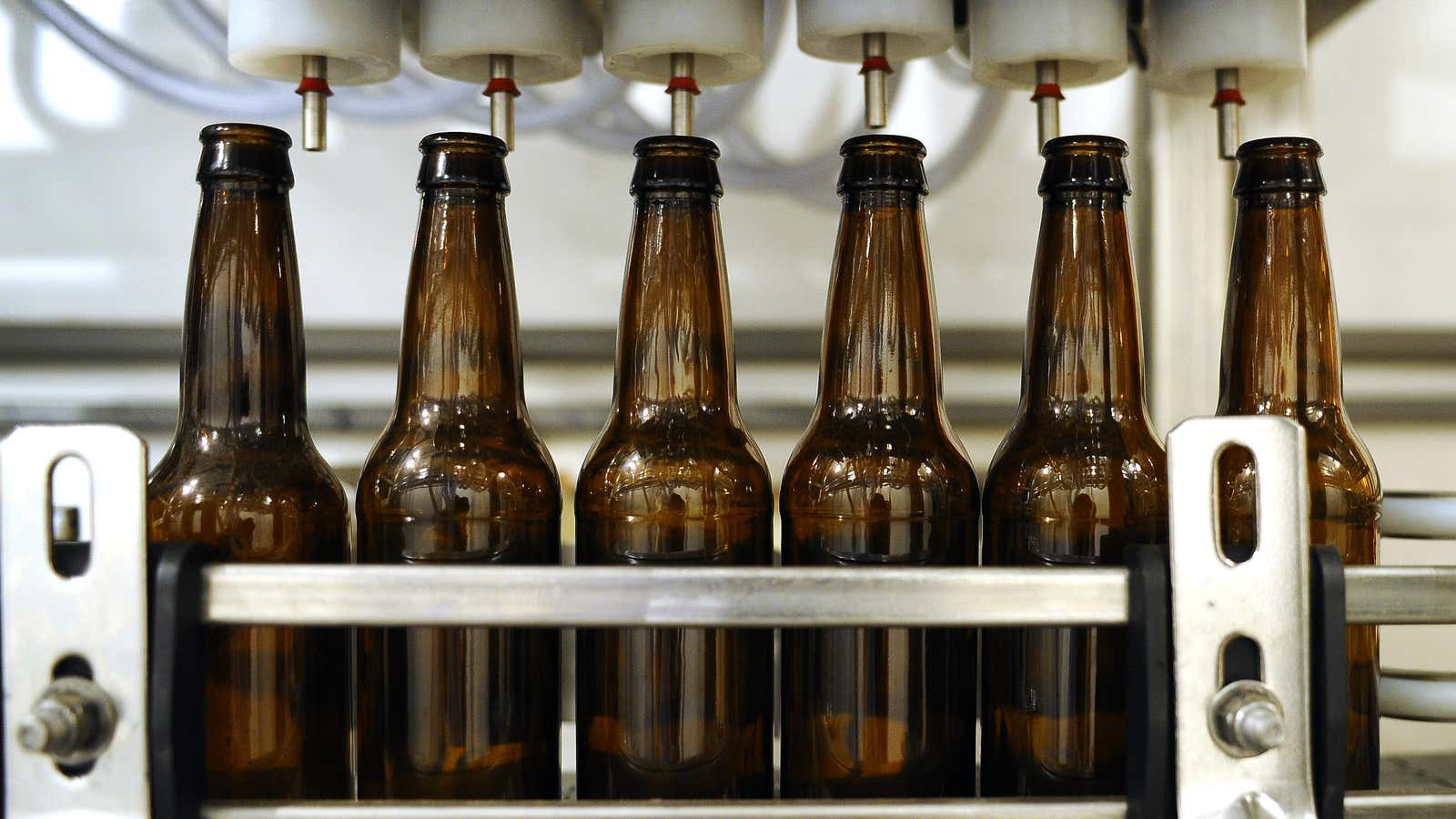Beer giant Anheuser Busch-InBev yesterday (Dec. 22) acquired Breckenridge Brewery, a move that strategically situates the company in the heart of Colorado craft brew country.
Breckenridge marks the seventh craft brewery that AB InBev has purchased in the last three years, and the third in the last week. On Dec. 21 it bought UK-based Camden Town Brewery, and on Dec. 18 it acquired Arizona-based Four Peaks Brewing.
The moves make sense for two obvious reasons: AB InBev has watched sales of its lagers decrease for 15 years. Meanwhile, the craft beer business has boomed, contributing as much as $55.7 billion to the US economy in 2014, according to the Brewers Association. Buying up successful craft breweries allows the company to diversify its offerings and tap into a strong consumer trend.
But there’s a third reason AB InBev stands to gain: by getting more control of beer distribution networks.
Think of it from a distributor’s perspective. If a distributor is making good money working with craft brewers, there’s less incentive to carry AB InBev’s beers, some of which are on the decline. But if AB InBev buys up the craft breweries, distributors may find themselves in a position in which they have to take on more AB InBev products.
The company also recently rolled out a new program for distributors, giving them a financial incentive to focus primarily on AB InBev products. Under the program, AB InBev will reimburse distributors for marketing expenses based on the amount of AB InBev product they distribute. Ricardo Melo, the company’s vice president of sales strategy, told The Wall Street Journal the plan will improve AB InBev offerings for consumers and better equip wholesalers to compete.
This could become a concerning situation for craft breweries looking to make headway in a market already rich in consumer choices. If distributors have a disincentive to push non-AB InBev products, it could limit a small-time brewer’s chance to gain a foothold in the local market.
It doesn’t help that the number of beer distributors—excluding the very small brewers who’ve acquired self-distribution licenses—have been decreasing for the last two decades, typically through consolidation, said Bart Watson, chief economist for The Brewers Association.
The AB InBev incentives program puzzled some people, including the National Beer Wholesalers Association, which represents distributors. That group said it understands why AB InBev would want to buy up a successful brewery, but said the roll-out of the incentive program left a lot of people scratching their heads, especially in light of AB InBev’s impending mega-merger with SABMiller, which is subject to an anti-trust review. A lot of questions remain about whether smaller operations will be edged out of the market, or never given the chance to compete at all.
“In many markets there’s only one distributor,” said Kathleen Joyce, NBWA spokeswoman.
